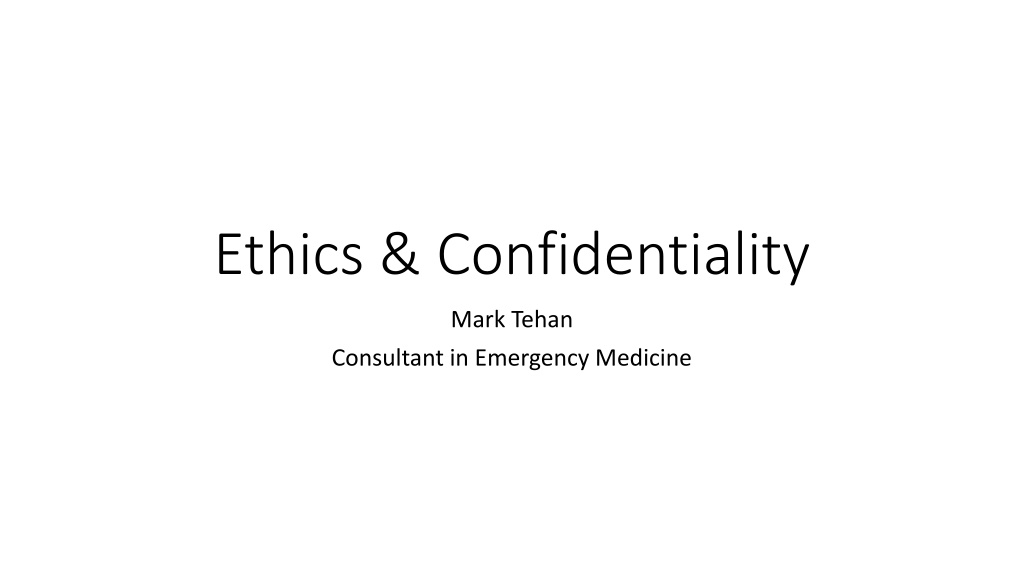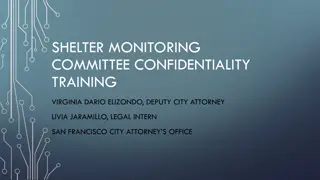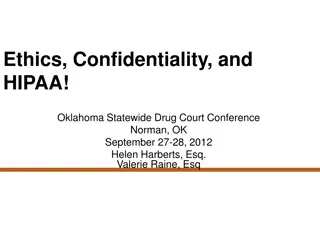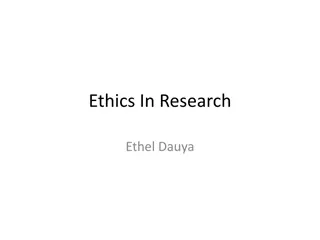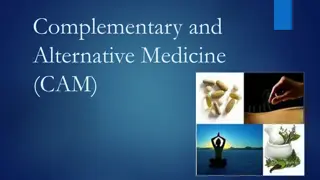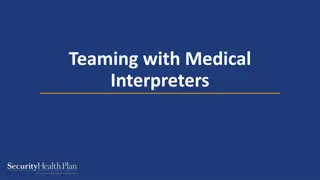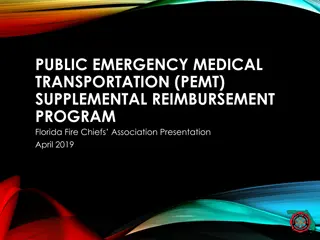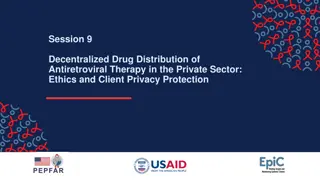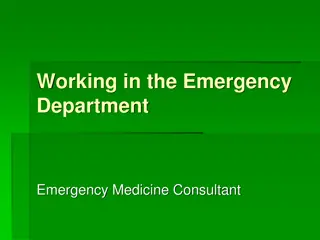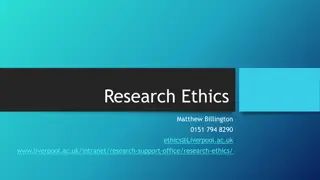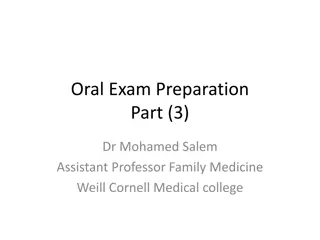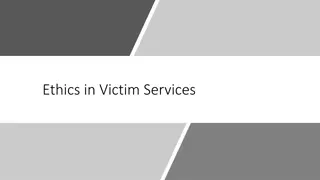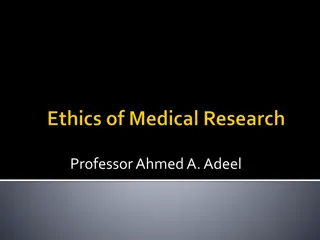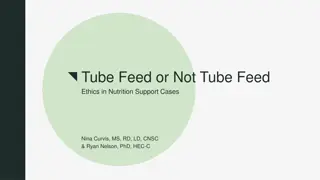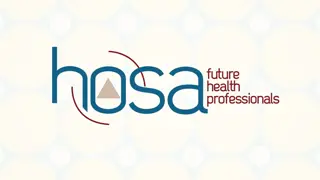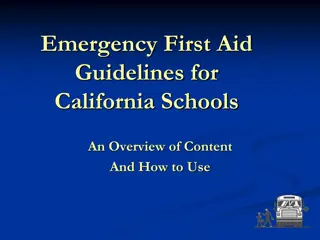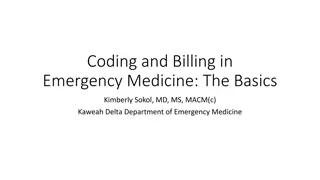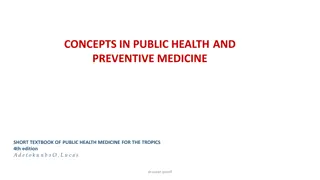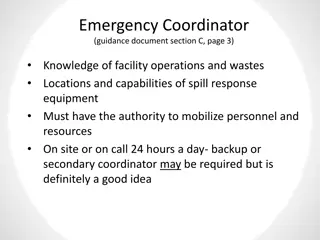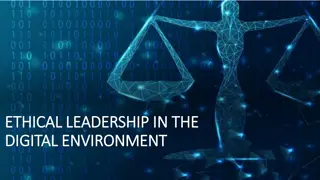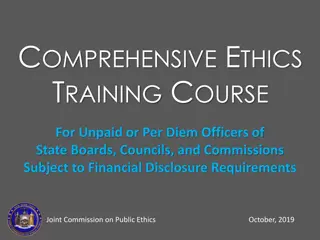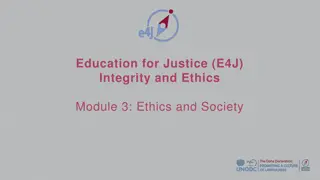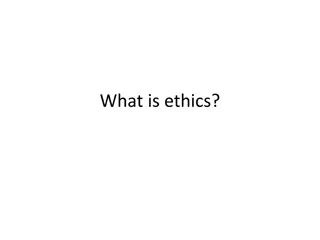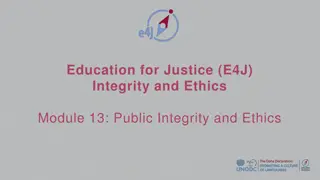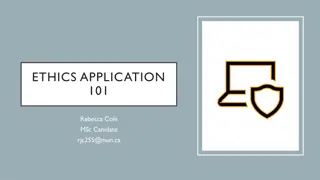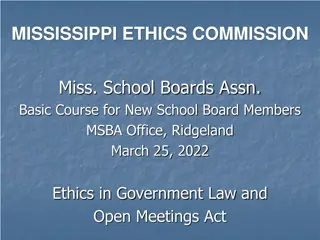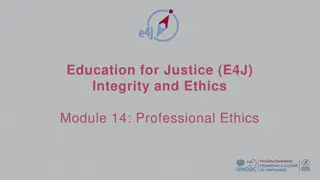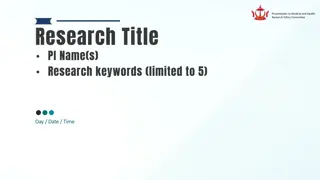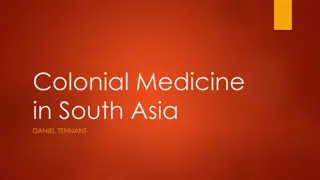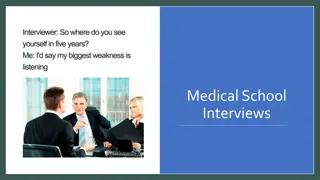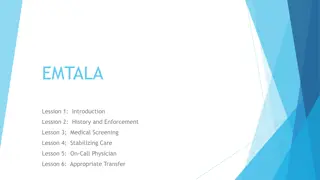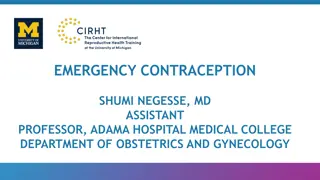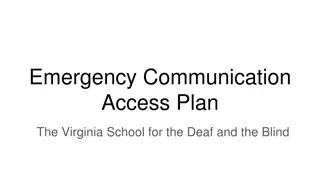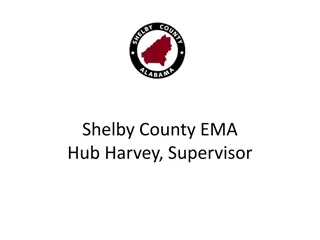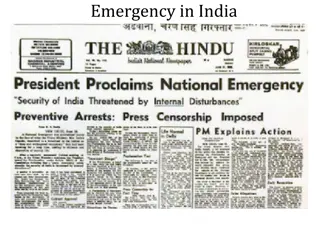Medical Ethics and Confidentiality Guidelines in Emergency Medicine
Exploring the principles of medical ethics through the Hippocratic Oath and the New Hippocratic Oath, emphasizing the commitment to patient care, respect for human life, confidentiality, and maintaining the highest standards of medical practice.
Download Presentation

Please find below an Image/Link to download the presentation.
The content on the website is provided AS IS for your information and personal use only. It may not be sold, licensed, or shared on other websites without obtaining consent from the author. Download presentation by click this link. If you encounter any issues during the download, it is possible that the publisher has removed the file from their server.
E N D
Presentation Transcript
Ethics & Confidentiality Mark Tehan Consultant in Emergency Medicine
Ethics Hippocratic Oath Hippocratic Oath I swear by Apollo Healer, by Asclepius, by Hygieia, by Panacea, and by all the gods and goddesses, making them my witnesses, that I will carry out, according to my ability and judgment, this oath and this indenture. To hold my teacher in this art equal to my own parents; to make him partner in my livelihood; when he is in need of money to share mine with him; to consider his family as my own brothers, and to teach them this art, if they want to learn it, without fee or indenture; to impart precept, oral instruction, and all other instruction to my own sons, the sons of my teacher, and to indentured pupils who have taken the Healer s oath, but to nobody else. I will use those dietary regimens which will benefit my patients according to my greatest ability and judgment, and I will do no harm or injustice to them. Neither will I administer a poison to anybody when asked to do so, nor will I suggest such a course. Similarly I will not give to a woman a pessary to cause abortion. But I will keep pure and holy both my life and my art. I will not use the knife, not even, verily, on sufferers from stone, but I will give place to such as are craftsmen therein. Into whatsoever houses I enter, I will enter to help the sick, and I will abstain from all intentional wrong-doing and harm, especially from abusing the bodies of man or woman, bond or free. And whatsoever I shall see or hear in the course of my profession, as well as outside my profession in my intercourse with men, if it be what should not be published abroad, I will never divulge, holding such things to be holy secrets. Now if I carry out this oath, and break it not, may I gain for ever reputation among all men for my life and for my art; but if I break it and forswear myself, may the opposite befall me. Translation by W.H.S. Jones.
Ethics New Hippocratic Oath New Hippocratic Oath AS A MEMBER OF THE MEDICAL PROFESSION: I SOLEMNLY PLEDGE to dedicate my life to the service of humanity; THE HEALTH AND WELL-BEING OF MY PATIENT will be my first consideration; I WILL RESPECT the autonomy and dignity of my patient; I WILL MAINTAIN the utmost respect for human life; I WILL NOT PERMIT considerations of age, disease or disability, creed, ethnic origin, gender, nationality, political affiliation, race, sexual orientation, social standing, or any other factor to intervene between my duty and my patient; I WILL RESPECT the secrets that are confided in me, even after the patient has died; I WILL PRACTISE my profession with conscience and dignity and in accordance with good medical practice; I WILL FOSTER the honour and noble traditions of the medical profession; I WILL GIVE to my teachers, colleagues, and students the respect and gratitude that is their due; I WILL SHARE my medical knowledge for the benefit of the patient and the advancement of healthcare; I WILL ATTEND TO my own health, well-being, and abilities in order to provide care of the highest standard; I WILL NOT USE my medical knowledge to violate human rights and civil liberties, even under threat; I MAKE THESE PROMISES solemnly, freely, and upon my honour.
Ethics GMC Duties of a Doctor GMC Duties of a Doctor make the care of your patient your first concern be competent and keep your professional knowledge and skills up to date take prompt action if you think patient safety is being compromised establish and maintain good partnerships with your patients and colleagues maintain trust in you and the profession by being open, honest and acting with integrity.
Ethics Balance of; Non-maleficence Beneficence Autonomy Human Rights
Ethics Cultural Concerns Conflicts of Interest Financial Family Sexual
Ethics Cultural Concerns Conflicts of Interest Financial Family Sexual
Data Protection Act Personal data shall be processed fairly and lawfully and, in particular, shall not be processed unless: at least one of the conditions in Schedule 2 is met, and in the case of sensitive personal data, at least one of the conditions in Schedule 3 is also met. Personal data shall be obtained only for one or more specified and lawful purposes, and shall not be further processed in any manner incompatible with that purpose or those purposes. Personal data shall be adequate, relevant and not excessive in relation to the purpose or purposes for which they are processed. Personal data shall be accurate and, where necessary, kept up to date. Personal data processed for any purpose or purposes shall not be kept for longer than is necessary for that purpose or those purposes. About the rights of individuals e.g.[13] personal data shall be processed in accordance with the rights of data subjects (individuals). Appropriate technical and organisational measures shall be taken against unauthorised or unlawful processing of personal data and against accidental loss or destruction of, or damage to, personal data. Personal data shall not be transferred to a country or territory outside the European Economic Area unless that country or territory ensures an adequate level of protection for the rights and freedoms of data subjects in relation to the processing of personal data.
Caldicott Guardian A Caldicott Guardian is a senior person within a health or social care organisation who makes sure that the personal information about those who use its services is used legally, ethically and appropriately, and that confidentiality is maintained. Caldicott Guardians should be able to provide leadership and informed guidance on complex matters involving confidentiality and information sharing.
Confidentiality Law Common Law Medical Act 1983 Data Protection Act 2018 (including GDPR) National Health Service Act 2006 Health & Social Care Act 2012 Children Act 1989 Police and Criminal Evidence Act 1984
Confidentiality Guidelines GMC Duties of a Doctor GMC Confidentiality Guidelines Defence Union Publications
Confidentiality Legal basis in Common Law Can disclose if; a. the patient consents b. it is required by law, or in response to a court order c. it is justified in the public interest. Disclosure must be proportionate
Consent to Disclose Must be capacitous Must be informed consent Patients who lack capacity can disclose in best interests Don t ask for consent if you must disclose Inform the patient that you will disclose Unless this undermines the purpose of disclosure (i.e. serious crime)
Disclosure to Protect Others You must disclose information if it is required by statute, or if you are ordered to do so by a judge Child & Adult Safeguarding Capacitous adults can withhold consent for information sharing Prevent duty Disclosure is likely to help in the prevention, detection or prosecution of a serious crime Failure to disclose information may put someone other than the patient at risk of death or serious harm
Gunshot & Knife Injury All gunshot injury (including accidental for licencing purposes) Knife injury (except where self-inflicted) The patient can refuse to speak to the police Consent to disclose personal information to police Unless; Failure to disclose information may put someone other than the patient at risk of death or serious harm (you should not usually disclose information against the wishes of an adult patient who has capacity if they are the only person at risk of harm) Disclosure is likely to help in the prevention, detection or prosecution of a serious crime.
Notifications of infectious diseases (NOIDs) Public Health (Control of Disease) Act 1984 Health Protection (Notification) Regulations 2010 Registered Medical Practitioner See poster PHE East of England Health Protection Team https://www.gov.uk/health-protection-team
Driving Neurological Seizure Syncope Stroke & TIA Dizziness Cardiovascular Angina AAA LBBB Must record your advice
Confidentiality & Death Duty of confidentiality continues New exceptions; Death certificates Coroners & coroners inquests When necessary to meet the duty of candour When someone close asks for information about the patient s death, and you have no reason to believe the patient would have objected Consider whether disclosing information is likely to cause distress to, or be of benefit to, the patient s partner or family
Help & Advice Caldicott Guardian Data Protection Manager Defence Union Record your decision making
End of Life Decisions Balance of; Non-maleficence Beneficence Autonomy Human Rights Involve patient & those close to them. Be open about uncertainty Understand the scope & limits of your role Presumption towards prolonging life. No absolute obligation to do so irrespective of patient views
End of Life Decisions Legally binding advanced refusals Made by an adult, had capacity, was informed, signed, witnessed, not withdrawn, not appointed an attorney since Not-legally binding ADs indicate patient preference and should be used to weigh-up Requests for futile treatment (inc. advance directives) No right to demand treatment Give weight to patient wishes when weighing up Nutrition & hydration Last hours or days; clinically assisted nutrition is not usually appropriate Not last days; more significant decision, second opinion usually required
